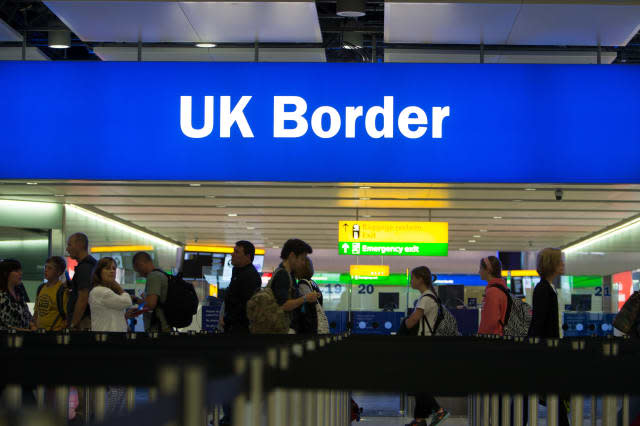Immigration 'has negative impact on living standards'

Large-scale immigration will have a negative effect on standards of living as any economic benefits will be outweighed by pressures imposed by a much bigger population, a think-tank has warned.
In a report on economic consequences of immigration, Cambridge University economist Robert Rowthorn said any gains would be small compared to strains placed on amenities such as housing, schools and hospitals.
The report, published by right-wing think-tank Civitas, said GDP as a whole would grow but GDP per capita would be only marginally affected by projected population growth forecast for the coming century.
In the report, Mr Rowthorn, Emeritus Professor of Economics at the University of Cambridge, said: "Unrestrained population growth would eventually have a negative impact on the standard of living through its environmental effects such as overcrowding, congestion and loss of amenity."
"Such losses would ultimately outweigh the small gain in average wages apparently resulting from mass immigration," he added.
The paper comes amid an ongoing focus on immigration in Westminster, with the Prime Minister most recently unveiling new restrictions on EU migrants, which will see the maximum period they can claim out-of-work benefits without having the serious prospect of a job cut from six to three months.
Elsewhere, Mr Rowthorn's report finds Home Secretary Theresa May and David Cameron's goal to reduce net migration to "tens of thousands" by the next election impossible to reach if European Union (EU) migration continues at the present rate.
Potential economic benefits of immigration stem mainly from its impact on the national age structure, by helping to rejuvenate an ageing UK population and increasing the share of the population of working age, he said.
But, he added: "If many of the immigrants fail to get jobs, or if they end up in low skill jobs or displace native workers, large-scale immigration will have a negative impact on GDP per capita and on government finances.
"Thus, the impact could be positive or negative but either way it is unlikely to be very large.
"The only thing that is certain is that immigration on the present scale, if it continues, will lead to much faster population growth and a much larger total GDP than would otherwise be the case, with consequent pressure on infrastructure and the environment."
Mr Rowthorn also warned that the UK's increasingly selective non-EU immigration policy risked stripping poorer countries of professionals on which they depended.
He says immigration controls should be designed to promote the welfare and economic development of the countries from which immigrants tended to come.
"Migration policy towards these countries should be seen as a complement to the official aid policy and not as a means of enriching ourselves at their expense," he said.
Against a backdrop of growing concerns of an influx of Romanians and Bulgarians to the UK, and a surge in popularity for Ukip, the Prime Minister last year rushed through a series of tough measures to clamp down on ''abuse'' of free movement between EU member states.
Mr Cameron and the Home Secretary want to cut net migration - the difference between migrants leaving and arriving in the UK - to below 100,000 - by the general election on May 7 next year.
But this target is moving further out of reach as most recent figures from the Office for National Statistics (ONS) showed net migration increasing to 212,000 in the year to December, from 177,000 the previous year.
More on AOL Money
Brits 'want cut in immigration'
Migrant benefits 'to be tightened'




